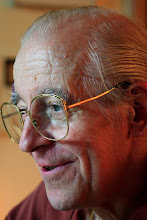As times change, management policies do, too. Lee Pyong-choll (李秉喆, 이병철, 1910-1987), the late founder of Samsung Group (삼성 그룹), stood by ‘business patriotism’. He said, “A company is committing a crime against the country when it does not make a profit.” The ‘man of steel’ Park Tae-jun (박태준) lived by ‘steel patriotism’, a resolution to pay back the country by making steel, the ‘rice of industry’. In an age when the per capita income was not even close to that of North Korea, at less than US$ 200, these heroes directed their efforts to help ‘the nation’. It was an age of patriotism. Nobody would dare to dream of driving a foreign-made car under the circumstances and even foreign cigarettes were subject to restrictions.
But as Korean industry grew to depend overwhelmingly on exports, the attitudes of its people changed. This is an international age that places importance on mutual benefits. The government has purchased foreign vehicles for diplomatic occasions and restrictions on foreign cigarettes have been weakened. Korea had to buy if it wanted to sell. This created a tight multinational network and since the 1988 Seoul Olympics Koreans have lived in this global age. Only one word has gone missing in this long transition—National.
Management policies and mottos also change to match the times. Industrial conglomerates like Samsung Group and LG Corporation (LG 법인) no longer speak of the ‘nation’. They speak of ‘customer satisfaction’ and ‘reaching customers’. They do not mean just domestic customers, but consumers from around the world.
Former dean of Yonsei University (延世大學校, 연세대학교) Song Cha (송자) emphasised, “The world is one market and you cannot survive unless you are No. 1 in the world.” Following this trend, the Pohang Iron and Steel Company (POSCO) has announced a new ‘POSCO way’ motto—a change from their 40-year-old motto of ‘steel patriotism’.
Former Chairman Chong Chu-yong (鄭周永, 정주영, 1915-2001) of Hyundai (現代, 현대) is the perfect example of the hardships of modernisation. He was a bulldozer who famously said that there may be pain, but there is no failure. He was always asking, “Have you tried it?” However, he never owned a comprehensive steel mill. Not so long ago, his son, Hyundai-Kia Automotive Group (현대-기아 자동차 그룹) chairman Chong Mong-gu (鄭夢九, 정몽구, 1938- ) held the opening ceremony of the first Hyundai comprehensive steel mill. He realised the dream of the older generation after 32 years. His motto is somewhere in between the patriotic one of his father and the customer-focused one of the future.
This was ‘quality management’. He fired the shaft furnace with a passion for ‘zero defects’, even handling parts himself. Above all, this vision is said to have created 170 000 jobs and stimulated production worth 24 trillion won (US$ 21.4 billion). This is the modern version of ‘steel patriotism’ and I look forward to see if really this will be a new idea generating rich harvest of the new ‘rice of industry’.
But as Korean industry grew to depend overwhelmingly on exports, the attitudes of its people changed. This is an international age that places importance on mutual benefits. The government has purchased foreign vehicles for diplomatic occasions and restrictions on foreign cigarettes have been weakened. Korea had to buy if it wanted to sell. This created a tight multinational network and since the 1988 Seoul Olympics Koreans have lived in this global age. Only one word has gone missing in this long transition—National.
Management policies and mottos also change to match the times. Industrial conglomerates like Samsung Group and LG Corporation (LG 법인) no longer speak of the ‘nation’. They speak of ‘customer satisfaction’ and ‘reaching customers’. They do not mean just domestic customers, but consumers from around the world.
Former dean of Yonsei University (延世大學校, 연세대학교) Song Cha (송자) emphasised, “The world is one market and you cannot survive unless you are No. 1 in the world.” Following this trend, the Pohang Iron and Steel Company (POSCO) has announced a new ‘POSCO way’ motto—a change from their 40-year-old motto of ‘steel patriotism’.
Former Chairman Chong Chu-yong (鄭周永, 정주영, 1915-2001) of Hyundai (現代, 현대) is the perfect example of the hardships of modernisation. He was a bulldozer who famously said that there may be pain, but there is no failure. He was always asking, “Have you tried it?” However, he never owned a comprehensive steel mill. Not so long ago, his son, Hyundai-Kia Automotive Group (현대-기아 자동차 그룹) chairman Chong Mong-gu (鄭夢九, 정몽구, 1938- ) held the opening ceremony of the first Hyundai comprehensive steel mill. He realised the dream of the older generation after 32 years. His motto is somewhere in between the patriotic one of his father and the customer-focused one of the future.
This was ‘quality management’. He fired the shaft furnace with a passion for ‘zero defects’, even handling parts himself. Above all, this vision is said to have created 170 000 jobs and stimulated production worth 24 trillion won (US$ 21.4 billion). This is the modern version of ‘steel patriotism’ and I look forward to see if really this will be a new idea generating rich harvest of the new ‘rice of industry’.
Giorgio Olivotto
Seoul, Korea
May 8, 2010
Seoul, Korea
May 8, 2010

Nessun commento:
Posta un commento